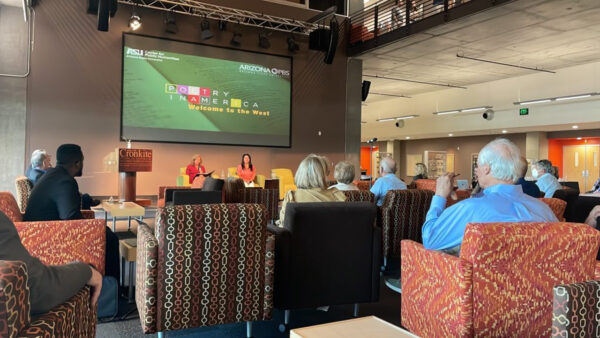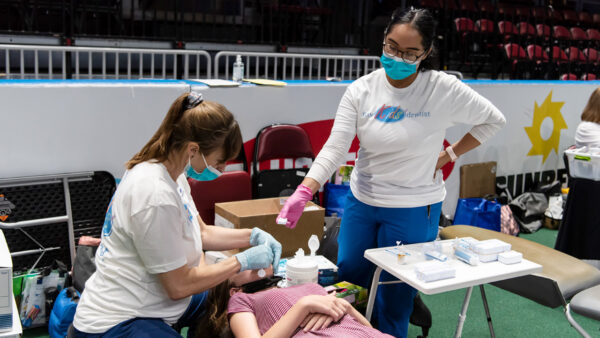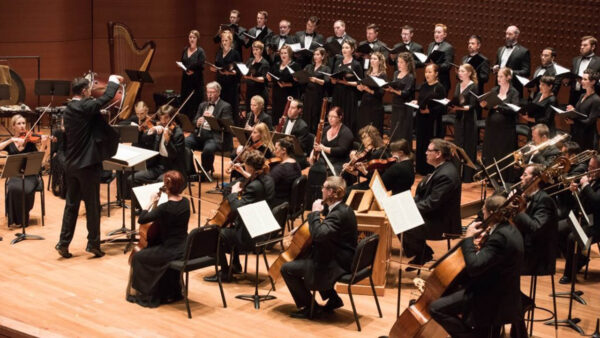Frontline “Law and Disorder”
Aug. 16, 2011
Henry Glover was last seen alive in the backseat of a white Chevy Malibu on Sept. 2, 2005, just days after Hurricane Katrina hit. Curled up and bleeding from a gunshot wound to the chest, Glover had been rushed to a temporary SWAT compound in the Algiers section of New Orleans by his brother Edward and a Good Samaritan hoping to get medical attention from the police.
“When I got there, I thought they was going to help us,” Edward King says. “But all I hear is, ‘Get out the car, get out the car.' So I'm hollering: ‘My brother's shot. He's shot.' The first thing they did was put us in handcuffs. And I'm like: ‘Why? We're coming for help.'” Glover would soon die. Later, his charred remains would be discovered on the banks of the Mississippi River, inside a car that had apparently been set on fire. The man who found the grisly scene tells Frontline , “The magnitude of the way [that car] was destroyed, it was telling a story.”
Now, five years after Katrina, Frontline in partnership with ProPublica and The Times-Picayune, presents Law & Disorder. Beginning with the death of Henry Glover—a case that's now resulted in the indictment of five New Orleans' police officers by a federal grand jury— Law & Disorder digs deep into a number of incidents in which police shot civilians in the aftermath of Katrina, raising new questions about the actions of police officers—and their command structure—during the aftermath of the catastrophe. Frontline “Law and Disorder” airs Tuesday, August 16, 2011 at 9 p.m. on Eight.
“What happened here in the days after Katrina would call into question whether the mayor and others helped create a climate in which the police felt justified in taking extreme measures to regain control over the city, ultimately setting this chain of events in motion that has completely turned the New Orleans Police Department upside down,” says correspondent and ProPublica reporter A.C. Thompson, whose initial investigation of Henry Glover's death sparked the federal probe back in late 2008.
The Glover probe, which now involves charges of murder, obstruction of justice and civil rights violations, is one of at least eight ongoing federal investigations into the NOPD. Most involve police actions in the days after the storm, including the Danziger Bridge shooting, in which police shot six civilians, killing two. Five current and former officers have pleaded guilty to federal charges in connection with the Danziger case thus far, and more charges are expected.
“People had been in the [Superdome] for several days and there was lawlessness on the street,” Sally Forman, then press secretary for New Orleans Mayor Ray Nagin, tells Frontline in her first television interview. “That's when the mayor says: ‘Let's stop search and rescue and bring our force back to controlling the streets. Let's stop the looting, let's stop the lawlessness, and let's put our police officers on the streets, so that our citizens are protected.'”
“I never declared martial law,” former Louisiana Gov. Kathleen Blanco tells Frontline . “I just decided that we needed to make a very strong statement to calm the media down and to calm the citizenry down, … to show that we were in control of the environment.”
“I remember at the time [former NOPD] Deputy Police Chief [Warren] Riley walked up in a pair of blue jeans, his uniform shirt and a ball cap, saying that we were not going to allow the looters to take the city; we were going to more or less protect the borders of it and march through downtown and take the city back,” says Kevin Diel of the NOPD. “It was a very broad order. What exactly did he mean, you know? Does he expect us, rank and file, to go through the streets, you know, shooting looters? Or how do you take a city that's underwater, you know?”
“We believed that we would lose officers, or were losing officers,” Riley ultimately tells Frontline . “We believed that people were shooting at our helicopters initially. That turned out not to be the case.”
“The NOPD is a department that is in great need of work,” federal prosecutor Jim Letten tells Frontline . “It is in need of restoration, reformation, … an absolute complete transformation, which has to happen, if NOPD is to survive as an effective law enforcement agency…. I think it's necessary even to the survival of this city.”
For more than a year, Frontline and its reporting partners at ProPublica and the New Orleans Times-Picayune have worked together to investigate six questionable police shootings in the wake of Hurricane Katrina. In pursuit of the truth, the reporters used an array of tools—from shoe-leather reporting to social networking— to uncover these stories and report them in real time on their websites, with photos, video, documents and audio recordings. It is an extraordinary journalistic effort that has spurred federal authorities to indict 16 current and former officers with the New Orleans Police Department, with more charges expected in the coming weeks.
)



















